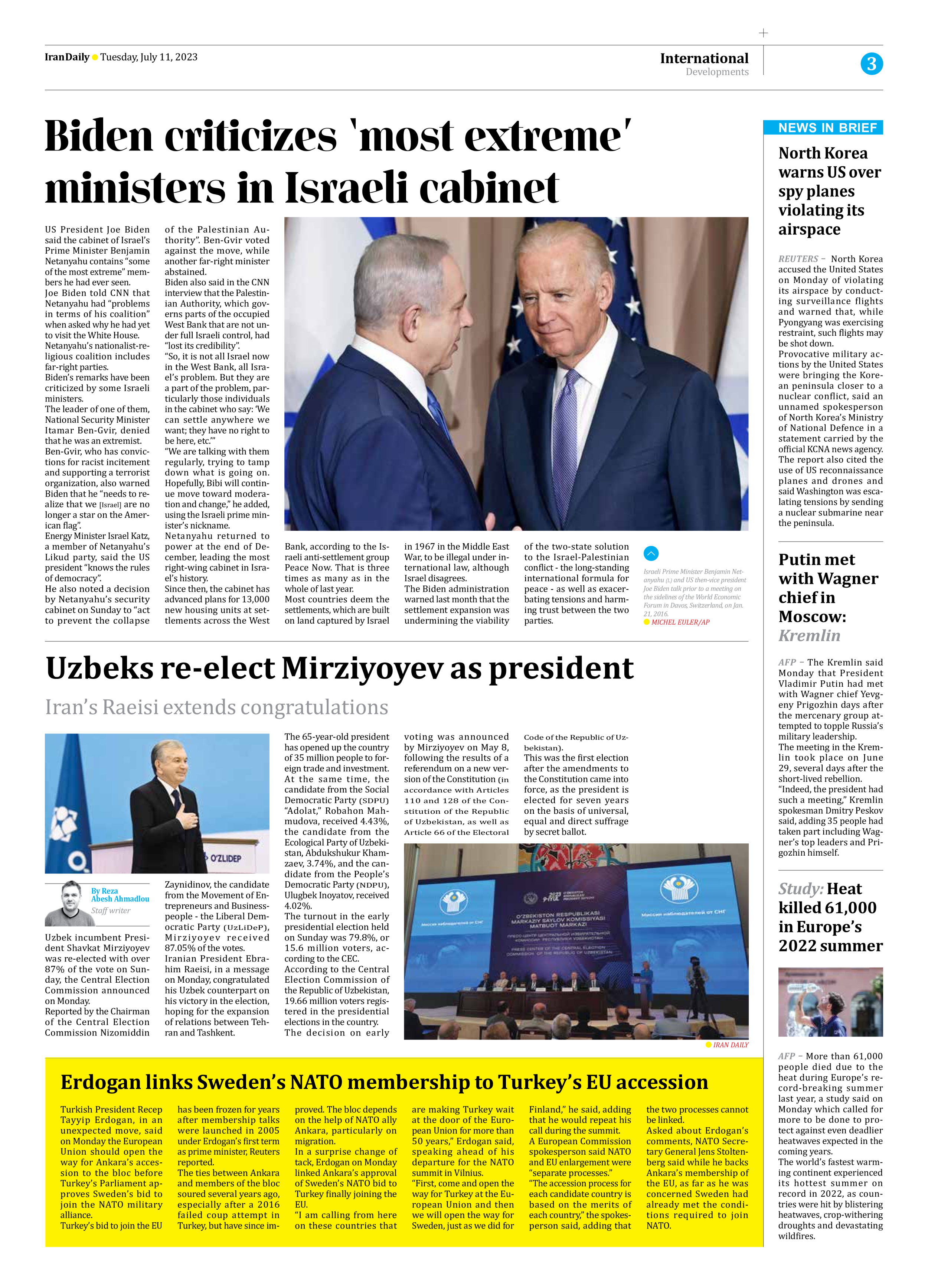
Biden criticizes ‘most extreme’ ministers in Israeli cabinet
US President Joe Biden said the cabinet of Israel’s Prime Minister Benjamin Netanyahu contains “some of the most extreme” members he had ever seen.
Joe Biden told CNN that Netanyahu had “problems in terms of his coalition” when asked why he had yet to visit the White House.
Netanyahu’s nationalist-religious coalition includes far-right parties.
Biden’s remarks have been criticized by some Israeli ministers.
The leader of one of them, National Security Minister Itamar Ben-Gvir, denied that he was an extremist.
Ben-Gvir, who has convictions for racist incitement and supporting a terrorist organization, also warned Biden that he “needs to realize that we [Israel] are no longer a star on the American flag”.
Energy Minister Israel Katz, a member of Netanyahu’s Likud party, said the US president “knows the rules of democracy”.
He also noted a decision by Netanyahu’s security cabinet on Sunday to “act to prevent the collapse of the Palestinian Authority”. Ben-Gvir voted against the move, while another far-right minister abstained.
Biden also said in the CNN interview that the Palestinian Authority, which governs parts of the occupied West Bank that are not under full Israeli control, had “lost its credibility”.
“So, it is not all Israel now in the West Bank, all Israel’s problem. But they are a part of the problem, particularly those individuals in the cabinet who say: ‘We can settle anywhere we want; they have no right to be here, etc.’”
“We are talking with them regularly, trying to tamp down what is going on. Hopefully, Bibi will continue move toward moderation and change,” he added, using the Israeli prime minister’s nickname.
Netanyahu returned to power at the end of December, leading the most right-wing cabinet in Israel’s history.
Since then, the cabinet has advanced plans for 13,000 new housing units at settlements across the West Bank, according to the Israeli anti-settlement group Peace Now. That is three times as many as in the whole of last year.
Most countries deem the settlements, which are built on land captured by Israel in 1967 in the Middle East War, to be illegal under international law, although Israel disagrees.
The Biden administration warned last month that the settlement expansion was undermining the viability of the two-state solution to the Israel-Palestinian conflict - the long-standing international formula for peace - as well as exacerbating tensions and harming trust between the two parties.







